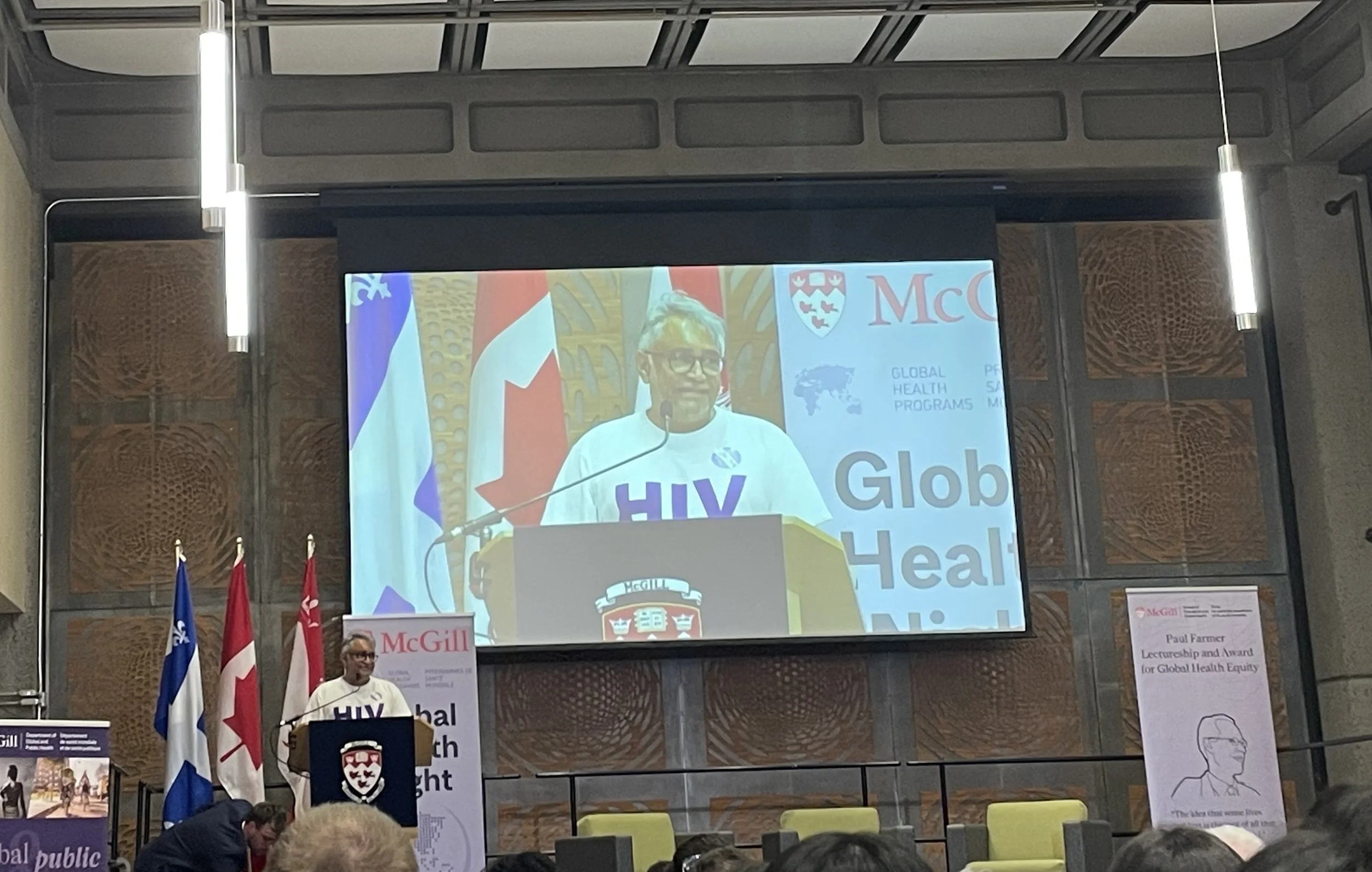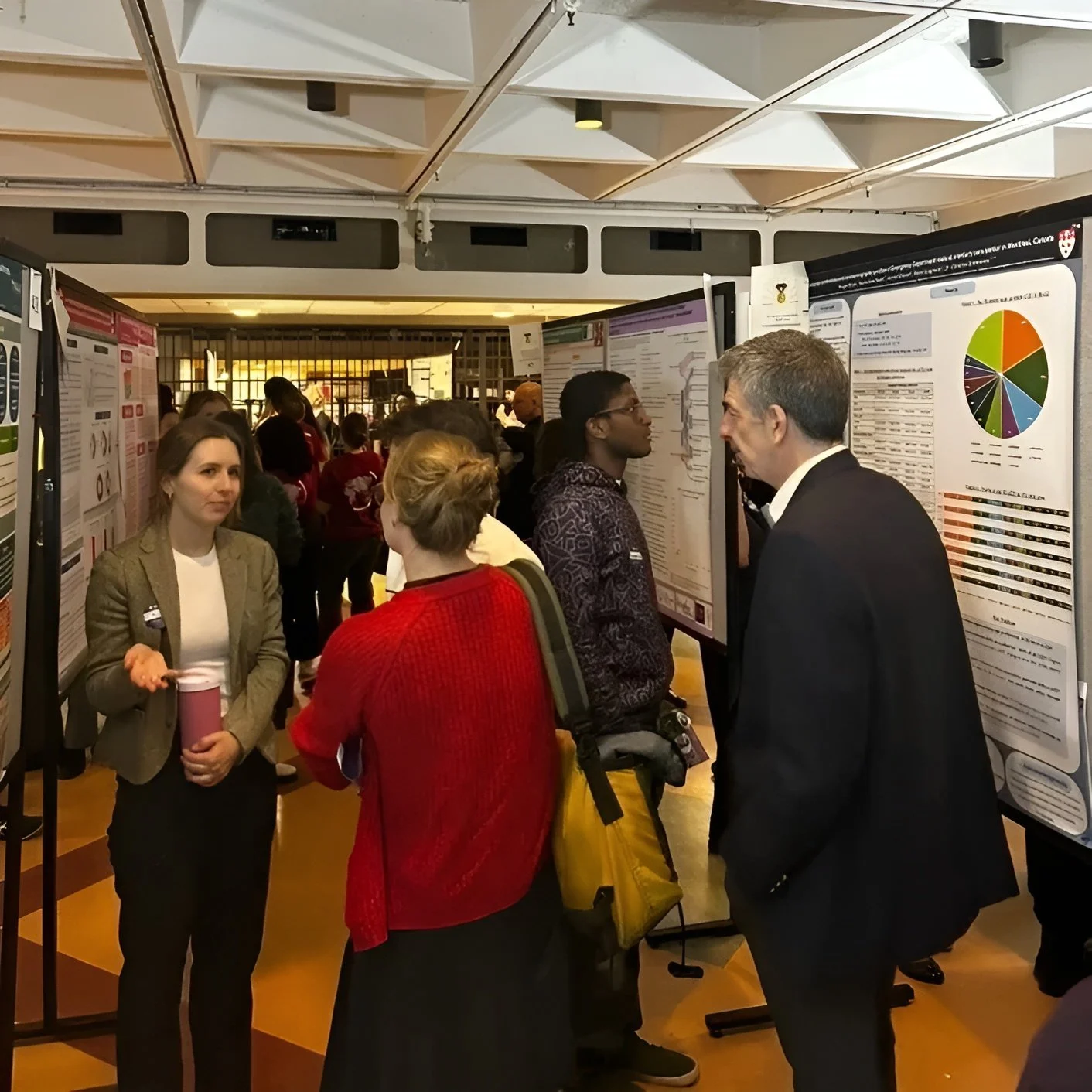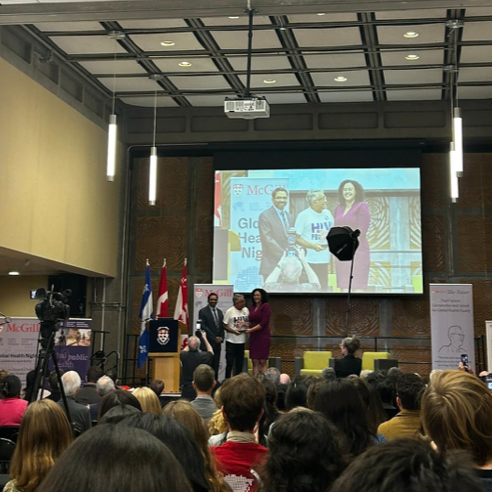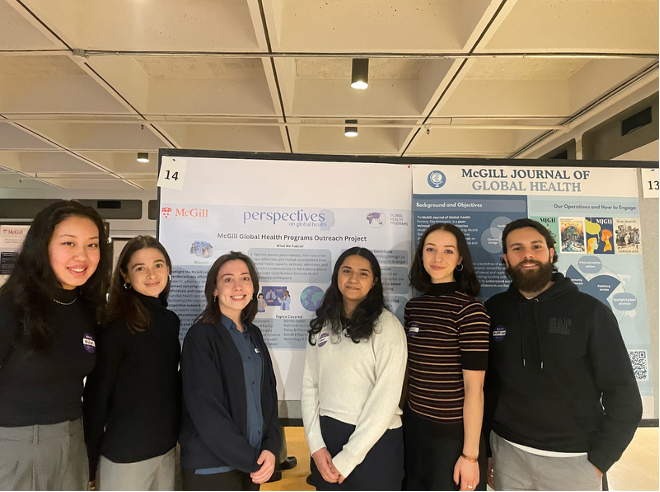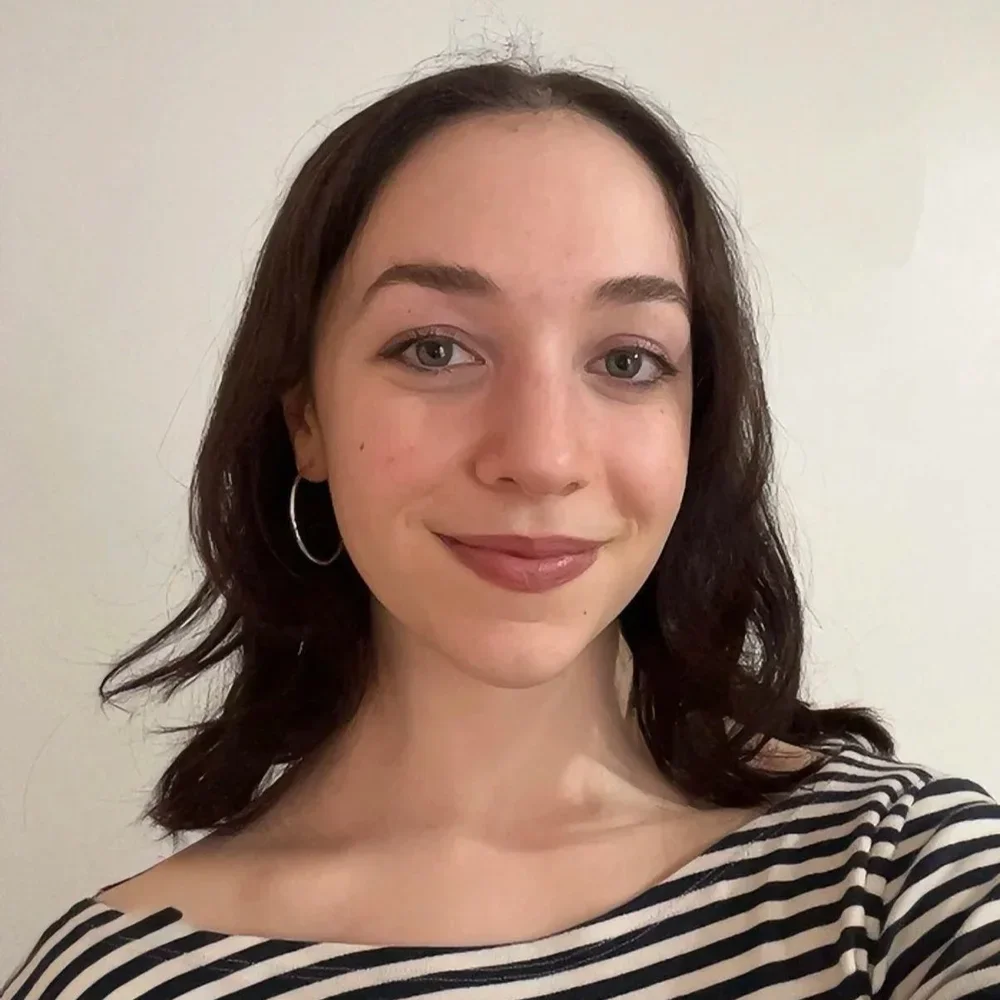Global Health Night 2025
By Rebecca Winkelaar
In the midst of what McGill’s own Dr. Madhukar Pai, Director of McGill Global Health Programs, has described as a “polycrisis”, it has become difficult to have a conversation about global health without someone citing a dire statistic or recounting a bleak story. The field can often be defined by overwhelm, which can make it feel hopeless. Progress is rarely highlighted, regression is the topic du jour, and optimism, a currency that once funded every initiative, is all but spent.
Yet this is a perilous mindset. Not only is it unhelpful in the face of the work still ahead, but it also stifles any hope born from how far we have already come. The “just give up” mentality is dangerous and isolating. It plays directly into the interests of those who benefit from stagnation, who would prefer that we — those working in global health — feel exhausted, disillusioned, and resigned.
With that in mind, McGill’s 17th annual Global Health Night felt timely. As a poster presenter and 2025 Global Health Scholar, I arrived eager not only to share my research but to leave the event feeling re-energized, inspired, and determined to continue the work.
The event began with the student poster fair, a showcase of the accomplished research and work undertaken by McGill’s student global health community.
Speaking with fellow presenters before the event began, nerves were common, but excitement and curiosity outweighed any anxiety. The student presenting across from me confessed, “Honestly, I hope someone asks me a question [about my poster] I can’t answer.”
That possibility worried me far more than it did her, but I admired her humility. Many of those stopping by our posters (professors, clinicians, and activists among them) would be far more experienced than we were. Rather than letting that intimidate me, I reminded myself that the night’s purpose was to share and celebrate our work, and above all, to keep learning.
Many presenters were Global Health Scholars, making Global Health Night the culmination of months of hard work. I was proud to see both my cohort and students outside the program speak so passionately about their research. Whenever I had a chance, I wandered the maze of posters. I was struck by their diversity, scope, and dedication to advancing health equity. Projects ranged from community-based initiatives (one scholar, for instance, studied first-language preferences in a Montreal ER) to global analyses like mine, which estimated discriminatory attitudes toward people living with HIV.
Presenters and attendees at the student poster fair.
For anyone who missed the event, the directory of student posters, awards, and details can be found on the Global Health Night program webpage.
The main program followed the poster fair, featuring award presentations, speakers, and a keynote lecture by the inaugural recipient of the Paul Farmer Award for Global Health Equity, Mr. Zackie Achmat.
“I have been feeling like a tugboat in a storm.”
With that, Dr. Madhukar Pai opened the program by confronting the unease surrounding global health head-on. Acknowledging the global rise of populism and nationalism, and the erosion of trust in political leadership, he reminded the audience that despair about the future of global health is a luxury we cannot afford. Quoting Dr. Paul Farmer, he said, “We have no business giving up on behalf of other people who have less privilege.” What rises from the ashes of global health, he insisted, is our generation’s to imagine and invent anew.
Dr. Pai then shared how McGill is doubling down on its commitment to advancing global health. The launch of a new B.A. in Population and Global Health beginning in Fall 2026, partnerships in Ghana through the Nkabom Collaborative, and an expanded Summer Institutes program all stood out. The evening also marked the launch of the Paul Farmer Award for Global Health Equity, created to honour those outside of academia who have been bold enough to “counter failures of imagination”.
Following Dr. Pai’s address, the award’s first recipient, Mr. Zackie Achmat, activist and co-founder of South Africa’s Treatment Action Campaign, delivered the inaugural Paul Farmer keynote lecture, “Defying the Law to Realize the Right to Live”.
Dr. Madhukar Pai and Catherine Bertrand Farmer, daughter of the late Paul Farmer, present Mr. Zackie Achmat with the Paul Farmer Award for Global Health Equity.
Even before beginning his lecture, Achmat’s presence carried weight. Having lived with HIV under apartheid in South Africa, he famously refused antiretroviral treatment until medication was accessible to all of South Africa, risking his life to challenge the HIV denialism of President Thabo Mbeki’s government.
His personal resolve and the moral clarity of his activism cut through the political noise that so often clouds academic discussion of health and justice — noise many of us in the room were all too familiar.
The core message of Achmat’s lecture surfaced, one both urgent and deeply human: solidarity is not symbolic — it is our duty. Achmat implored everyone to act in solidarity with the oppressed everywhere, no matter the risk: whether that was with activists defending democracy, with Palestinians and Sudanese facing genocide, with transgender people under threat, or women fighting for reproductive autonomy and rights in the United States.
Mr. Achmat received a standing ovation for his speech, and a Q & A period followed. Questions that came were circled around fear: how do we act, sustain hope, and find joy in resistance? Mr. Achmat’s answer to all was deceptively simple. Look inward to your own humanity and find that it is often reflected back at you in everyone. Let the fear we all feel — and feel it we must — guide us toward a good conscience, not paralysis. Activism cannot rest on altruism alone; it must be out of necessity. As Achmat put it, we act, “because there is no other option, so that we might sleep at night.”
A standing ovation at the conclusion of Mr. Zackie Achmat’s speech, the inaugural recipient of the Paul Farmer Award for Global Health Equity.
He concluded the Q & A with a challenge for the audience. What were we prepared to sacrifice for truth and justice: our comfort, our reputation, our university degree, our safety, as he had? Protest, he reminded us, is not always grand. Sometimes it is starting an uncomfortable conversation at the dinner table, refusing to be silenced, creating art, or writing poetry. Above all, Achmat insisted once again that global health is about solidarity and acting from the shared heartbeat of humanity.
I left the evening feeling what I had hoped to: re-energized, inspired, and determined to keep going. The combination of moving lecture and honest discussion reignited something I hadn’t realized had dimmed: a sense of purpose. McGill’s global health community is passionate, resilient, and deeply committed, and I was proud to be even a small part of it with my research.
The future of global health is daunting, but instead of shying away from the fear it evokes, I’m learning to sit with it, and at Achmat’s encouragement — to understand it, to let it embolden rather than silence me. Events like Global Health Night can remind us that our work is not about perfect optimism, but sustained solidarity: facing uncertainty together, and choosing, again and again, in the spirit of Dr. Paul Farmer, not to give up.
Members of the Perspectives Editorial Board 2025-2026 at Global Health Night. From left to right, Bridget Li (Health Reporter), Hillary Wright (Health Reporter), Sofia Lizza (Editor-in-Chief), Ahoor Saleem (Editor), Rebecca Winkelaar (Health Reporter), and Moustafa Laymouna (Editor).
Rebecca Winkelaar
is a fourth-year BSc Ecological Determinants of Health student at McGill University. Her research with Dr. Maheu-Giroux focuses on global patterns of HIV-related stigma through data analysis and visualization. She participated in the Global Health Scholars Program in 2025-2026 and currently serves as VP Advertising for the Canadian Association for Global Health at McGill. She is especially interested in bridging research and storytelling to make global health more accessible.

